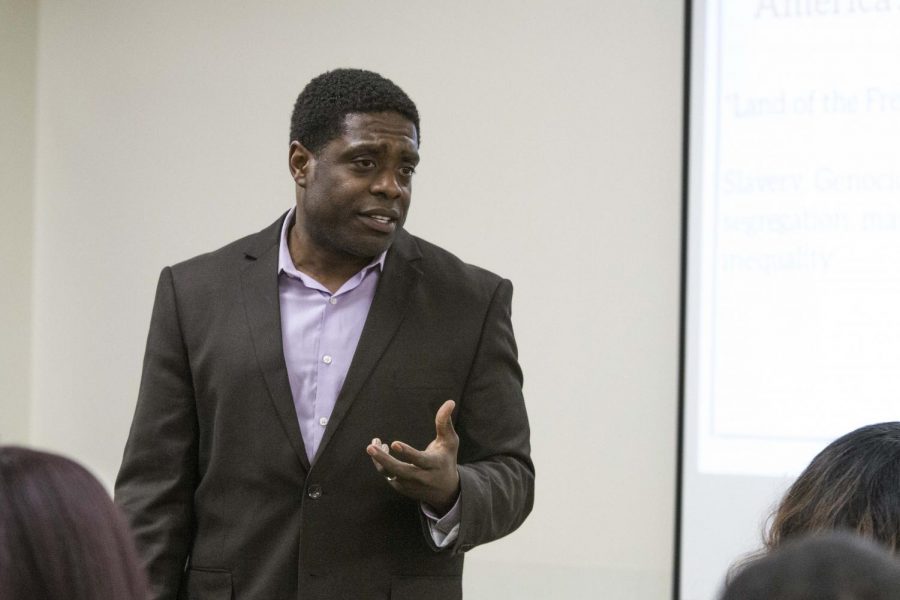Ted Williams on the state of education across Illinois: ‘Public policy matters’
Ted Williams during his lecture on April 19
April 24, 2018
Education is the greatest tool for social mobility; it is also a way to move America towards equality. On the contrary, Illinois is far below the national average when it comes to what the state contributes to education funding.
And this is the reason renowned public policy expert Ted Williams believes adequate funding for public schools should be important to the state of Illinois.
“Because we are behind, it affects every aspect of our education and community,” Williams said.
On April 19, the former candidate for the Chicago City Council had all ears when he spoke to a group of students on the topic: “Education, the Civil Rights Issue of this Generation.”
The event was hosted by the Center for Student Diversity and Inclusion. During this student engagement event, students participated in online questions about race, school segregation and earnings and unemployment rates by educational attainment.
Williams drew a correlation between historic public policies and the chronic underfunding of public schools in tough neighborhoods. Redlining, for example, has had a long-lasting impact on poor communities. The policy, widely practiced before the Civil Rights Act of 1968 was passed, prevented people of color from buying homes in certain neighborhoods.
“Public policy matters,” Williams said.
Williams also argued there is a strong relationship between the quality of schools and property value. Illinois’ public schools get about one-third of their total funding from property taxes.
“The communities in which the properties are valued the most heavily in Illinois are the ones who get the most money for their schools, and those communities with low property value don’t get the money for their schools,” Williams said. “The gap between the rich and the poor just expands rather than doing the opposite that will help us to have a different outcome.”
Williams ended his lecture by admonishing students to get involved and fight against social ills that have affected education within their communities or surrounding communities.
“If millions of people grow up without any resources and real equality, what do you think is going to happen to them?” Asked Williams. “I want to challenge you to go beyond the rhetoric you hear in the media, because most of our conversations in America is not about how everyone survives, but how do I get away from those elements that are damaging so I can live on the right side.”
Williams has taught political science at Wright College, Chicago State University and currently serves as the chairman of the social science department at Kennedy-King College. He holds degrees in public policy from the University of Chicago and Rutgers University.


















